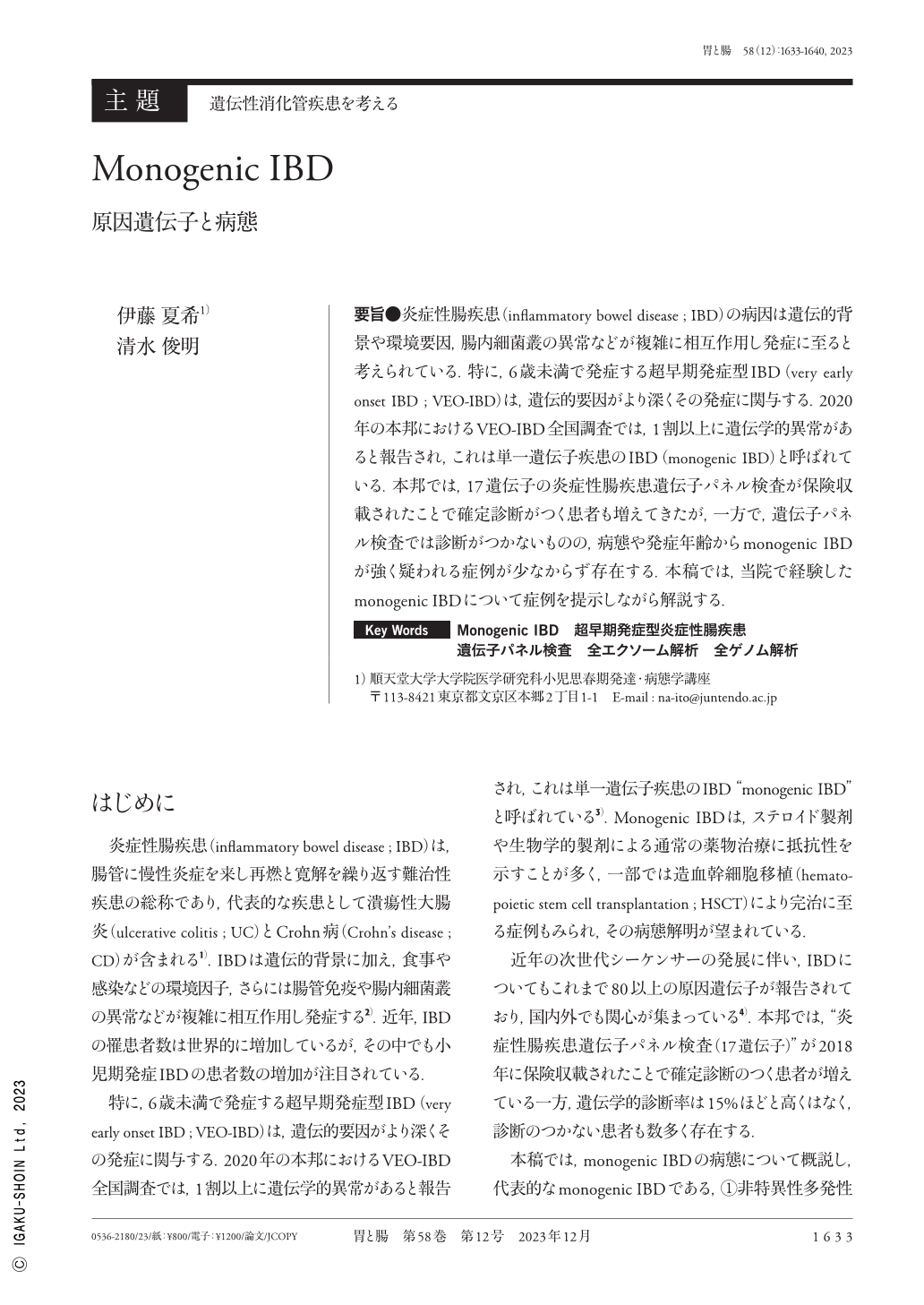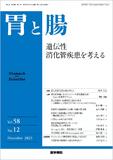Japanese
English
- 有料閲覧
- Abstract 文献概要
- 1ページ目 Look Inside
- 参考文献 Reference
要旨●炎症性腸疾患(inflammatory bowel disease ; IBD)の病因は遺伝的背景や環境要因,腸内細菌叢の異常などが複雑に相互作用し発症に至ると考えられている.特に,6歳未満で発症する超早期発症型IBD(very early onset IBD ; VEO-IBD)は,遺伝的要因がより深くその発症に関与する.2020年の本邦におけるVEO-IBD全国調査では,1割以上に遺伝学的異常があると報告され,これは単一遺伝子疾患のIBD(monogenic IBD)と呼ばれている.本邦では,17遺伝子の炎症性腸疾患遺伝子パネル検査が保険収載されたことで確定診断がつく患者も増えてきたが,一方で,遺伝子パネル検査では診断がつかないものの,病態や発症年齢からmonogenic IBDが強く疑われる症例が少なからず存在する.本稿では,当院で経験したmonogenic IBDについて症例を提示しながら解説する.
The etiology of IBD(inflammatory bowel disease)involves interplay between environmental factors, immune system alterations, intestinal microbiota, and genetic factors. In particular, genetic factors are thought to be crucial in the pathogenesis of VEO-IBD(very early-onset IBD), which occurs before 6 years of age. Notably, monogenic IBD represents a form of enteritis that originates from a single pathogenic variant. A national survey conducted in Japan in 2020 on VEO-IBD revealed that >10% of patients with VEO-IBD demonstrated a genetic abnormality, also known as monogenic IBD. A 17-gene IBD panel test, now covered by insurance in Japan, is increasing the number of patients with confirmed diagnosis. However, based on clinical presentation and age of onset, a small subset of patients who could not be diagnosed through the test showed strong indications of having monogenic IBD. Here, we present a case study with detailed case description of monogenic IBD observed at our hospital.

Copyright © 2023, Igaku-Shoin Ltd. All rights reserved.


